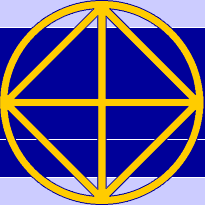Climatic Extremes
Yesterday at my office I was at a presentation of impressions from a journey to the north of Mali a colleague and a photographer had made last week. They had been accompanying a health care team of the Mali Red Cross – distributing mosquito nets to pregnant women – to shoot photos for a donation campaign. The journey – via Timbuktu and Goundam to small villages over bumpy roads – through the desert had been quite an adventure for the Europeans, and the report of my colleague gave a lively, colourful impression.
It was very impressive to see how the people there live in great poverty in a desert-like area, which had been full of lakes until beginning of the 70ies of last century. The Niger River dry, 40 degrees centigrade, burning sun, a sandstorm, nothing of the infrastructures which are so normal to us here, like electricity, water, telecommunication… not even vegetables, and for food just a bit of rice and millet. And the wells are running more and more dry.
In the group of listeners the head of a PR-agency who has designed the donation campaign asked: Why do you support people in an area where there is no future for them? Why not evacuate them to other areas? – The photographer explained that he also had reflected on it during the journey, but that you cannot give just simple answers. The people have arranged their lives in a way to cope the extreme difficulties, though many children die and the health of the adults is also often poor.
I was deeply moved by the impressions of the journey. Looking out of the window, it was raining, and it continued to do so the whole day and night and also today. The rivers in Switzerland are overflowing their banks, there are help appeals in the media, and this morning I shot some pictures of the flood water in the old town of Berne for a news article on relief efforts. It was cold, the sky heavily covered with grey clouds.
A friend from Minnesota wrote today that the farmers over there are praying for rain, and this for the third year. The climate is getting warmer, but the people don’t believe in global warming.
It’s such a range of simultaneous extremes.

The old town of Berne with high water of the river Aare


